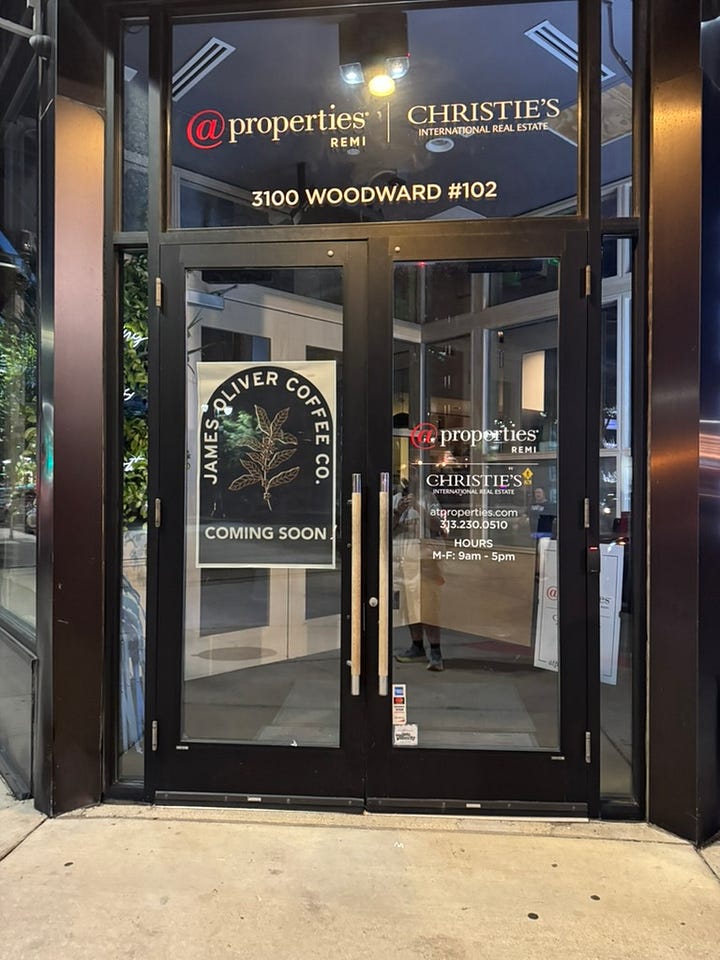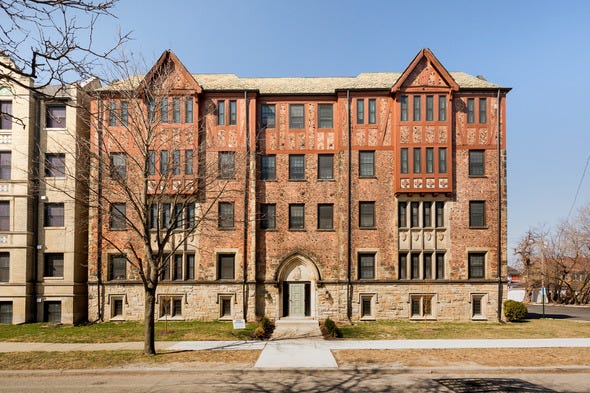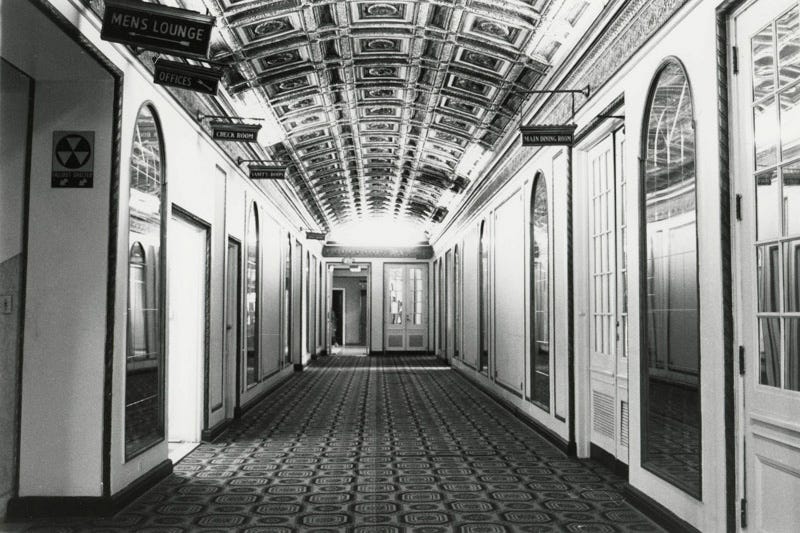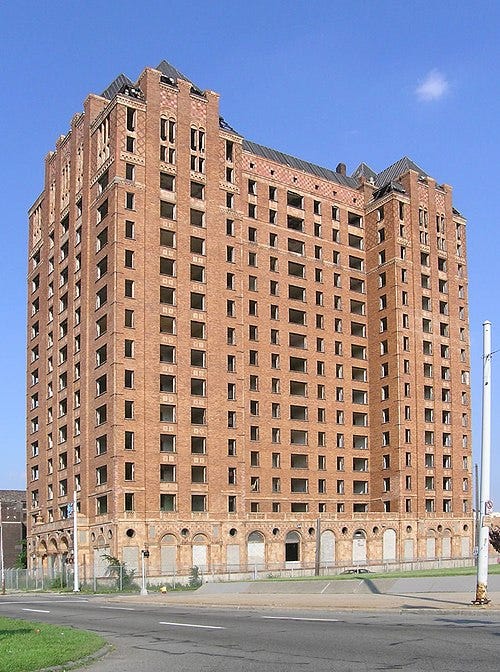Renovated Apartments Open on Hazelwood
One street in the Piety Hill neighborhood has been the center of several apartment renovations over the past few years, two formally opening just a few weeks ago. The Kinglsey Arms and Lee Arden apartments, both dating back to the 1920’s, have undergone full renovations totaling around $10.5 million, and are now open for lease. The 93 units range from studios to two bedrooms range in price from under $800 for the smallest units and under $1,200 for the larger and are meant to be affordable based on AMI thanks to support from the Detroit Housing for the Future Fund (DHFF).
The DHFF is managed by LISC Detroit and leverages private dollars for gap funding in projects that target affordable housing. DHFF is a subset of the Affordable Housing Leverage Fund that the City has set up through the Housing & Revitalization Department to raise money and deploy private grant and low interest loan capital.
The two buildings have been abandoned for at least 15 years and required a full rehab including new lighting, water fixtures, HVAC, windows, and roof replacement. The development team utilized the Wayne County Property Assessed Clean Energy Program to supplement their capital stack, which is designed for energy efficiency upgrades. It’s great that these buildings will have the architectural charm of a building that’s lasted almost 100 years, but the inside will be modern and comfortable with these new amenities. Plus, the common quip is that the greenest building is the one that already exists.
While the two apartments are quite the accomplishment on their own, Hazelwood Partners, which consists of the two principals of Inkwell Partners and other investors, have already completed a full apartment renovation on the same street and added a fourth smaller renovation this year. The Weber Apartments, completed back in 2022, consisted of 44 apartments in a building originally from 1927, also getting funding from DHFF to keep the units affordable for the area.
Altogether, the full slate of rehabilitations brings over 130 units of housing to one a single neighborhood, on a single street. I don’t have specifics in front of me, but I have to imagine this is one of the largest slates of housing to open in this area in decades. With a mix of modern amenities and a goal of affordability, it could be a great catalyst for more housing and businesses in the neighborhood.
Lee Plaza Renovations Underway
Over the past month or so, a rehab of one of Detroit largest vacant buildings has gotten underway. Or at least of half of it. The Lee Plaza on Grand Boulevard, in the New Center/NW Goldberg area, has long been one of the most visually apparent vacant buildings in Detroit, as it towers above most buildings around it. Standing at 16 stories, the building was built in 1928 as a “residential hotel”, where people would live full time but enjoy the amenities one would expect at a luxury hotel. The developer, Ralph T. Lee, engaged famed architect Charles Noble to design the Lee Plaza, along with several residential buildings around the city.
Opened in 1927, the Lee Plaza featured ornamental decor and unrivaled amenities, including room service, beauty parlor, game room, meat market, and 24-hour valet. Despite its grander, the building fell into receivership less than four years after opening. After multiple bouts of legal woes and court cases, the Lee Plaza, along with Ralph Lee, were bankrupt but 1935. Throughout essentially the entire hotel’s lifespan, it was tettering on financial insolvency until eventually, in 1969, the City Housing Commission took control and turned it into low-income senior housing. The former luxury hotel would serve this purpose until it was ultimately closed in 1997, now with cinder blocks and barricades lining its entrances instead of valet and bellhops. Historic Detroit has a great recounting of how several artifacts from the closed Lee Plaza ended up in luxury condos in Chicago.
Now, nearly three decades after it closed, the Lee Plaza is finally on the path to renovation and restoration. Ironically, the first phase of the renovation calls for its use to be what had seemed like the last-ditch effort in the 20th century, low-income senior housing. The Roxbury Group, who developed projects such as the AC Marriot, Element Hotel, and David Whitney, along with partners Ethos Development Partners, and Lighthouse, have taken on the task and began work on the building over the last several weeks. The first restoration phase, planned to be completed in the fall of 2026, will consist of 117 affordable senior apartments on floors 2-10 and will cost approximately $60 million. The next phase, starting soon after, will be the remaining top-level floors and house 65 market rate apartments.
This project has been long in the works, even after first being announced by the development group. The financing package for the first phase consists of a laundry list of local and state incentive and financing, including Low-Income Housing Tax Credits (LIHTC) from the state, American Rescue Plan Act (ARPA) funding from the city, state grants, federal Housing and Urban Development (HUD) dollars, and historic and low-income tax credit investments from JPMorgan Chase and the Royal Bank of Canada.
Rising above many of the buildings that surround it, an abandoned Lee Plaza has already been fairly stark rising on the Boulevard. Given the investment that has poured into Henry Ford Hospital, the Motown Museum, and infrastructure upgrades on Rose Parks, it seemed to be a matter of time before someone could make the numbers work for the Lee Plaza. Even then, as we see with the details behind the renovation, it seems to be on extremely thin margins. The experience behind the development group bodes well, but this is one to monitor as it works towards its first phase opening next year.
James Oliver Expanding
Local coffee and bagel shop James Oliver has been on a bit of a territorial tear lately. What started as a single shop that took over the space formerly occupied by Detroit Institute of Bagels, has now become a bit of a local chain. First, they set up shop within the Guardian Building offering something for the downtown workers. Then came the more highly publicized and anticipated expansion into the downriver community of Wyandotte. That location opened just last month.


Now, all of a sudden, it appears that James Oliver is expanding to two additional locations within the City of Detroit. First, James Oliver signage has been hung at the former Alto Coffee on Woodward. The space, which also has a former life as New Order Coffee, is in the same building as Bakersfield and Grey Ghost and is just down the street from Little Caesars Arena. It will be a welcome addition to the area as it will serve a breakfast and lunch crowd, while a lot of the restaurants in the area are catered more towards dinner and event goers.
At the same time, a James Oliver sign has also appeared at a recently renovated commercial space on the corner of Trumbull and Forest in Woodbridge. The small building, which itself is attached to an apartment building, went through a full teardown and rehab, originally housing Detroit Windows and Doors. The new coffee shop will certainly be welcome in a neighborhood that serves many Wayne State students and has seen a large influx of new housing and condo’s over the last few years. I’m pretty sure I’ve seen plans to renovate the housing across the street too, I’ll have to see if I can dig that up.



It’s cool to see a local place like this branch out and become a mini chain of sorts. We’ve seen it recently with Red Hook, and Madcap expanding from Grand Rapids. More places for people to grab coffee, a snack, and chat with friends are always good in my book. And we get to see some cool reactivation of a commercial space.








